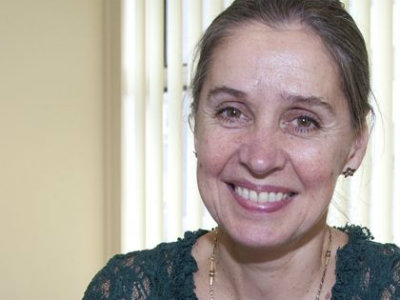
Fast track social work education schemes such as Frontline and Step Up to Social Work must not be allowed to become a two-tier training system, directors of children’s services have warned.
President of the Association of Directors of Children’s Services, Alison O’Sullivan, told the National Children and Adult Services Conference in Bournemouth that social work reform must not “inadvertently destabilise the system we are aiming to strengthen”.
She said the new schemes, as well teaching partnerships, had introduced fresh momentum to the development of high quality initial social work training.
Manage the supply
“But we must make sure that we don’t create a two tier training system and we must keep an overview of the market for initial training to ensure we manage the supply of high quality social work staff in future.”
O’Sullivan also expressed fears that the government’s proposed accreditation system for children’s social workers should not increase bureaucracy.
While agreeing the introduction of three assessed and accredited statuses had the potential to improve consistency and confidence in social workers – particularly among the judiciary – she said care must be taken to ensure implementation was not “over-elaborate”.
“And it must be embedded within arrangements that local authorities already have for career development and progression. We must keep coherence with adult social work. And, it must not become an additional burden or distraction.”
Not sufficient
In a separate session the chief social worker for adults’ services, Lyn Romeo, said she expected early testing of the accreditation system in children’s services would help ensure implementation did not become bureaucratic.
Romeo also delivered a speech by Isabelle Trowler, chief social worker for children, who was unable to be at the conference.
In the speech Trowler told delegates: “We have focused on initial education for many years and it’s not sufficient. We need to extend it. We are about to test the validity of accreditation.”
Important when commissioning services
She heralded a practice leader’s development programme, due to launch next year, and said she also expected 2016 to bring about big changes in how children’s services are developed and inspected.
“Accreditation will become increasingly important for councils commissioning out their services because councils will know if an organisation hires a fully accredited team of social workers.”
Trowler also claimed accreditation would have an impact on agency numbers and save money, although the speech did not elaborate on how this conclusion was arrived at.


 A trauma-informed approach to social work: practice tips
A trauma-informed approach to social work: practice tips  Problem gambling: how to recognise the warning signs
Problem gambling: how to recognise the warning signs 




 Find out how to develop your emotional resilience with our free downloadable guide
Find out how to develop your emotional resilience with our free downloadable guide  Develop your social work career with Community Care’s Careers and Training Guide
Develop your social work career with Community Care’s Careers and Training Guide  ‘Dear Sajid Javid: please end the inappropriate detention of autistic people and those with learning disabilities’
‘Dear Sajid Javid: please end the inappropriate detention of autistic people and those with learning disabilities’ Ofsted calls for power to scrutinise children’s home groups
Ofsted calls for power to scrutinise children’s home groups Seven in eight commissioners paying below ‘minimum rate for home care’
Seven in eight commissioners paying below ‘minimum rate for home care’
 Facebook
Facebook X
X LinkedIn
LinkedIn Instagram
Instagram
Drip by drip and step by step progress is being made by the Department for Education and its chief social worker to fragment the social work profession, to have it even more dominated and defined by government, and to open it up to the market place. Here is Isabelle Trowler explicitly stating that government required (and KPMG defined) accreditation of social workers is “increasingly important for councils commissioning out their [social work] services”.
She could also have commented that she is championing and progressing at pace a two tier status for newly qualifying social workers – with a privileged position for those who are politically praised,well-funded, and who are being portrayed and presented as an elite who are fast tracked in their training and careers, and encouraged and enabled to leave practice and to move quickly into management and leadership roles (within the contracted social work services now to be provided in the competitive and commercial market place?). This is not a criticism of the social work students doing the fast-track programmes. It is a criticism of those who are seeking to create division within the social work profession with all the professional and service fragmentation which will result.